Georgia in pictures
| Travel in a time of coronavirus I started this blog as a celebration of our crazy, fabulous planet, but with Covid-19 closing borders for months, possibly years, any new travel adventures are on hold for the foreseeable future. So, in the meantime, I’ll be delving into my diaries and scanning my old 35mm slides to bring you some stories and photos from the past 25 years. |
I’d have a hard time choosing if you asked me to name the most fascinating country I’ve visited, but I would be sure of one thing. Georgia would be at, or very near, the top of the list.
This compact, complex country straddles the cultural and geographic boundary between Europe and Asia — it borders Turkey, Russia, Armenia and Azerbaijan — and I suspect the only reason it still gets muddled up with a US state of the same name is because it has spent much of the past 200 years under the thumb of Russia and then the Soviet Union.
Otherwise it would surely be a well-known travel destination and on top of everyone’s wishlist.
On the face of it Georgia and New Zealand have quite a few things in common. Both are relatively small countries — Georgia is about two-thirds the size of the North Island, with roughly the same population of 3.7 million — and both are rugby-mad.
Any mention of New Zealand in Georgia is met with cries of “All Blacks!”, hearty back slaps and invitations to drink frightening quantities of home-made wine, as I discovered more often than was good for me.
[Story continues below the photo gallery]
Also, both countries have extraordinarily varied scenery, though Georgia probably has the edge. It’s little more than 500km from west to east but has everything from subtropical tea plantations to semi-desert and 5000-metre-high peaks.
The vegetation along the humid Black Sea coast provides another unexpected Kiwi connection. The area is bristling with New Zealand plants such as flax and cabbage trees, thanks to a suitable climate and a historical quirk involving a Russian botanist.
That, however, is where the similarities end.
While New Zealand was the last significant land mass to be settled by humans, Georgia is an ancient land. The Georgians believe they are descended from Noah, who landed his ark nearby in what is now Turkey.
One of western civilisation’s oldest tales — Jason and the Argonauts’ quest for the Golden Fleece — is set in Colchis, or ancient Georgia, and the Georgians were among the first nations to adopt Christianity, beaten only by the Armenians and the Romans.
And while New Zealand has been a largely peaceful country for the past 150 years the same unfortunately can’t be said for Georgia. When the country regained independence in 1991, after almost two centuries of Russian and Soviet rule, it plunged almost immediately into civil war.
With Russian backing two breakaway provinces remain self-declared independent states; and in 2008 Georgia fought a short but disastrous war with Russia in a failed bid to regain control of South Ossetia. (Moral of the story: Never pick a fight with a neighbour who’s much, much bigger than you.)
During communism Georgia had the highest standard of living in the USSR but by the early 2000s GDP had hit rock bottom and the country was a mess.
Electricity was sporadic, the old-age pension had plummeted to US$5 a month, and doctors rented out beds to tourists like me because hospital salaries were too low to survive on. Wine exports, once a mainstay of the economy, had been wiped out by a Russian blockade. Lawlessness reigned in parts of the country and I had to skip Svaneti, Georgia’s most beautiful region, because banditry was rife.
When I visited in 2004 I sometimes felt like I was touring a post-apocalyptic movie set. I recall staying with a family in a high-rise apartment block which had been built with every modern amenity available to Soviet planners but where water, power and gas hadn’t worked for years.
Instead the family cooked on a kerosene stove, used candles for lighting, and walked five flights of stairs to collect water from a well.
Since then, however, Georgia has made huge strides. The lights work, the rule of law prevails, and it has — or had, until Covid — a booming tourist industry. Corruption has been slashed by bold moves such as sacking the entire 30,000-strong traffic police force and starting afresh with new recruits.
For the visitor Georgia remains inexpensive and welcoming. Wine is plentiful and the food is great, especially for lovers of pastries, cheese and dumplings.
The culture is unlike any other on Earth with a unique 1600-year-old alphabet, a powerful ethos of hospitality, and one of the world’s great musical traditions (the only place which comes close to Georgia’s polyphonic singing is the Italian island of Sardinia).
Best of all are the Georgians themselves. Unlike their often dour Russian neighbours to the north they are a passionate, joyous, sometimes fiery people, who love nothing more than a big get-together involving copious amounts of food, wine, singing and oratory. I can’t wait to get back and explore the bits I had to leave out last time.
What’s in a name?
Most languages use some variation of ‘Georgia’ to describe the country, which regularly causes confusion with the US state of the same name.
The name is thought to come from the ancient Persian word Gorgan meaning ‘land of the wolves’.
Though the dragon-slaying St George is a popular figure in Georgia — as he is in Western Europe, Russia and even Ethiopia — the name predates Christianity by millennia.
The Georgians themselves don’t use the name Georgia. Instead, they call their country Sakartvelo, literally ‘Land of the Kartvelians’ after the Georgian region of Kartli.
According to legend Kartli was named after Kartlos, a great-great-great-grandson of Noah, whose descendants spread across the region after he beached his ark on nearby Mt Ararat. Hence the Georgians trace their descent to Noah and the survivors of the Great Flood.
More reading
New Zealand readers may be curious as to how Georgia’s Black Sea coast came to be over-run with uniquely New Zealand flora such as flax/harakeke and cabbage trees/tī kōuka. You can read the explanation in my story, In a corner of a foreign field.
The more morbid among you may want to read about Georgia’s cemeteries, and I’ve also written a piece about following the Stalin trail through Georgia, called Looking for Uncle Joe.
If mention of Georgia’s unique musical traditions piqued your interest, here’s a clip about UNESCO declaring Georgian polyphony part of humanity’s intangible cultural heritage. Annoyingly, however, the explanation is voiced over the top of the singing.
This is an amateur video clip of a dinner party in Georgia but it gives a great impression of the Georgian love for polyphonic singing, feasting and wine, not necessarily in that order. Here’s another polyphony clip, better quality but minus the feast, and here’s a great documentary about Georgian table singing.
You may also want to watch Trio Mandili, three young women taking traditional Georgian music into the YouTube era, and this profoundly beautiful clip of a Georgian choir singing a polyphonic psalm for the Pope in a cathedral in Mtskheta. They are singing in Aramaic, the language spoken by Christ, rather than Georgian, but the vocal techniques are the same.

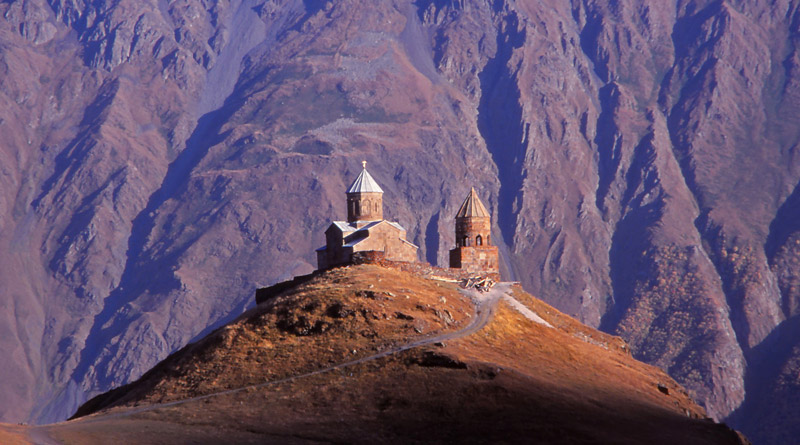

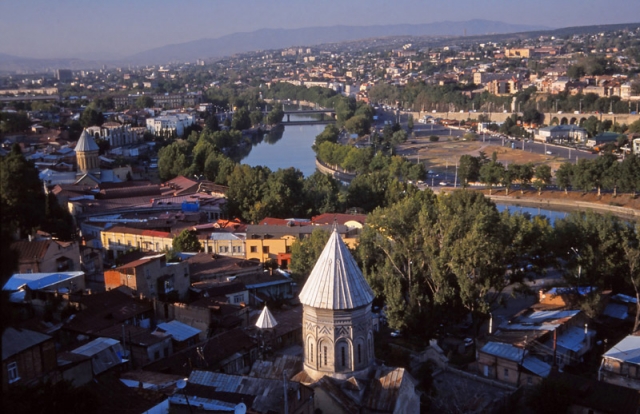

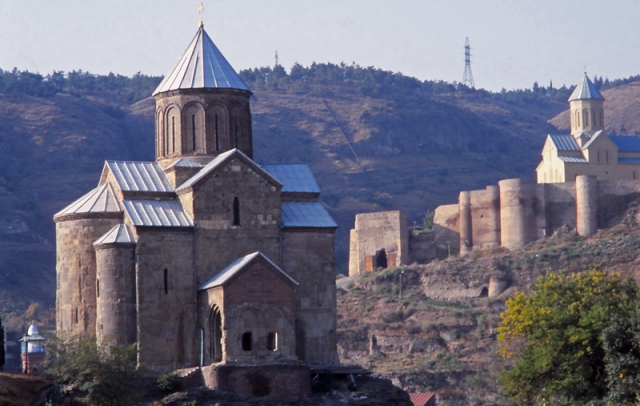

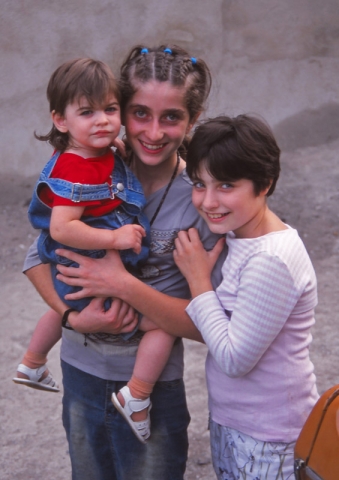
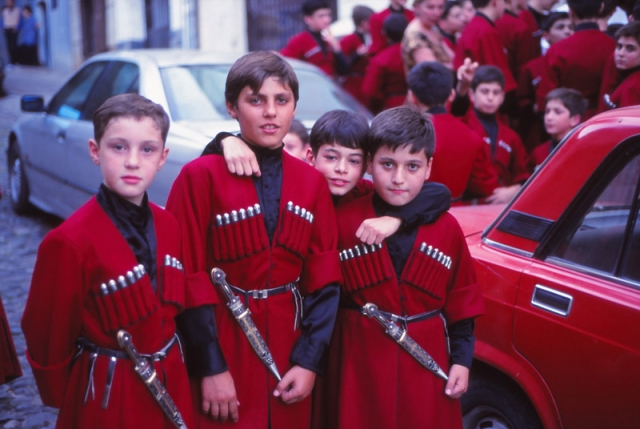

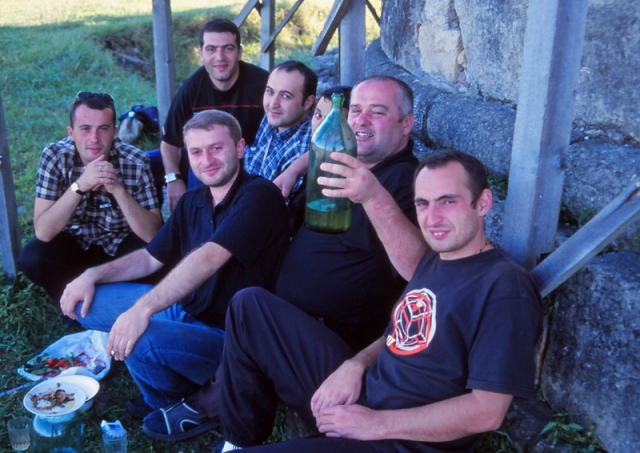
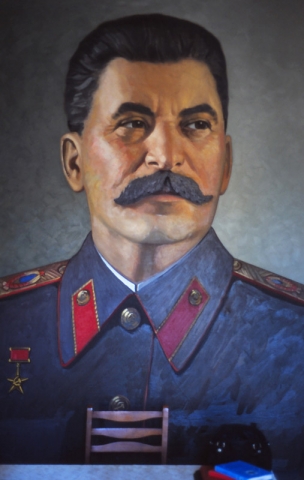
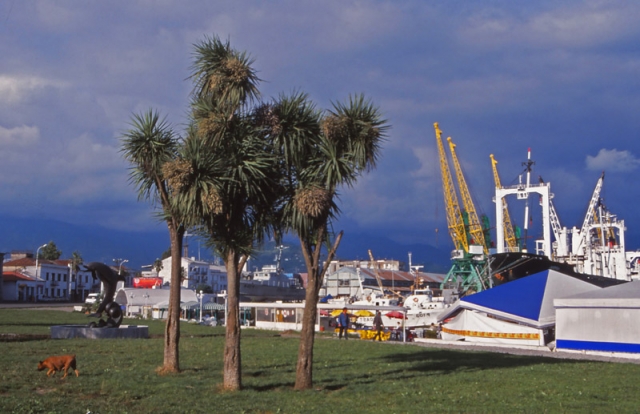
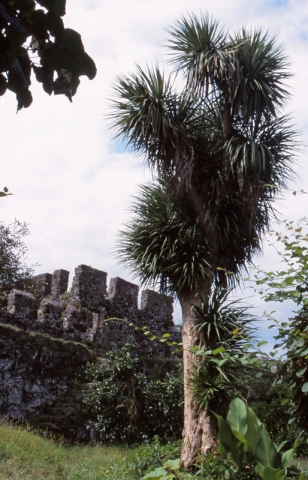
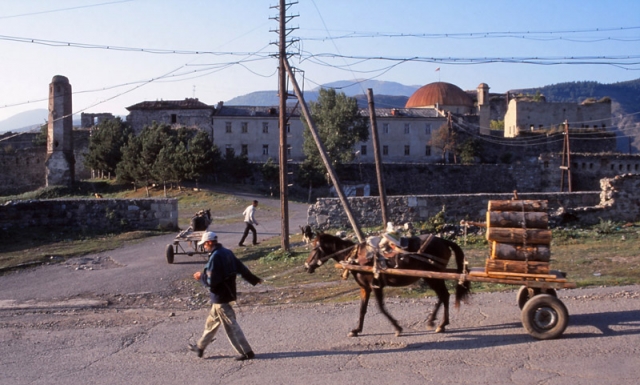
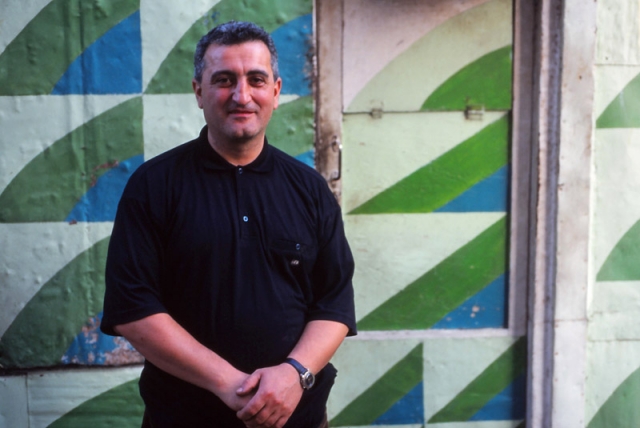
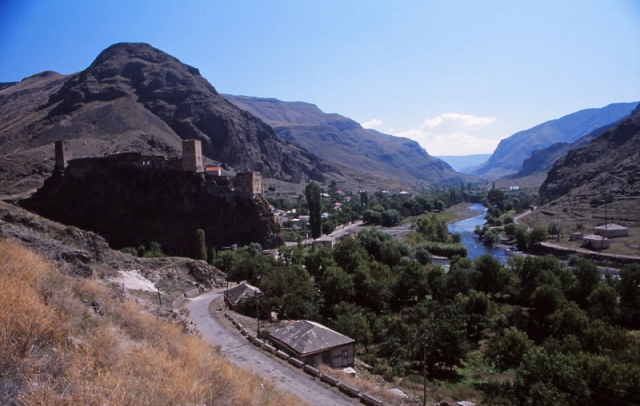
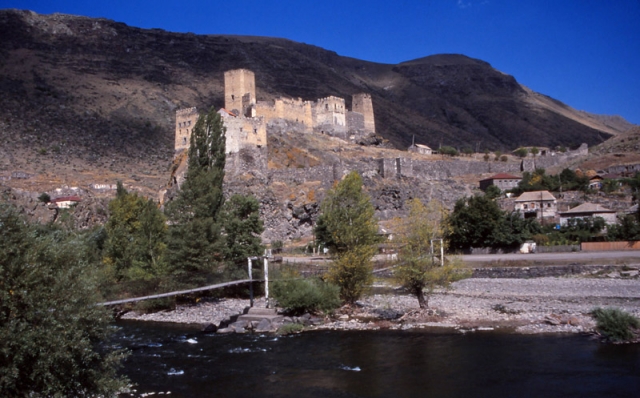
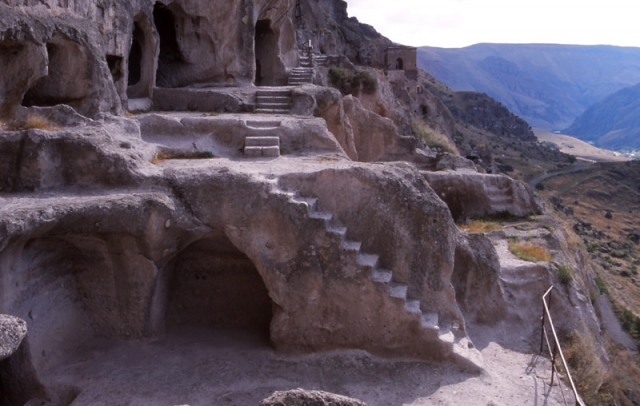
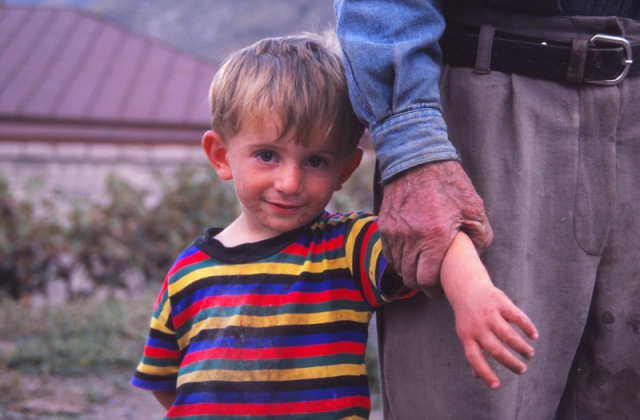
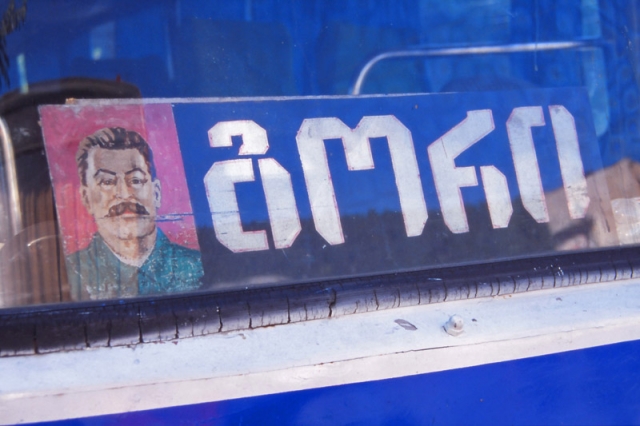
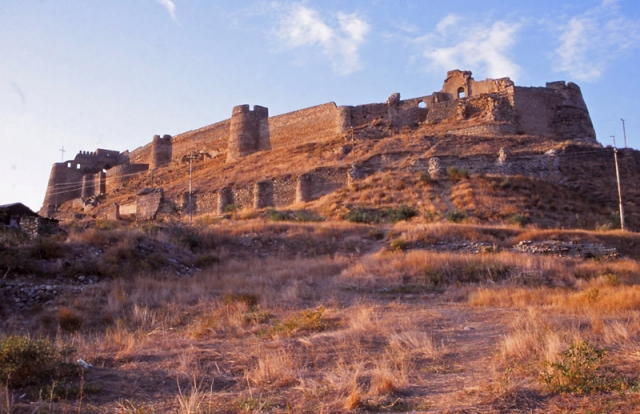
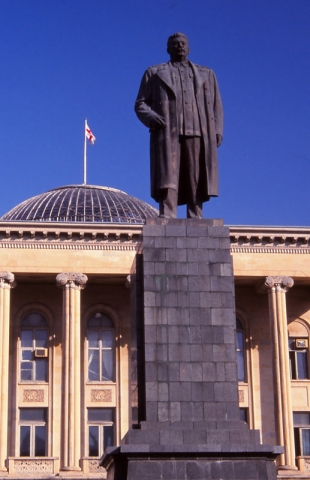
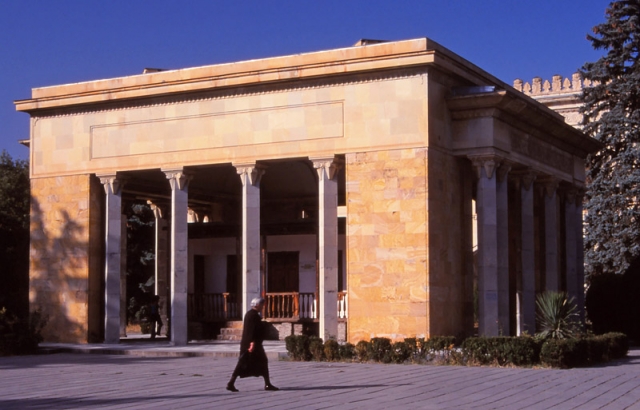
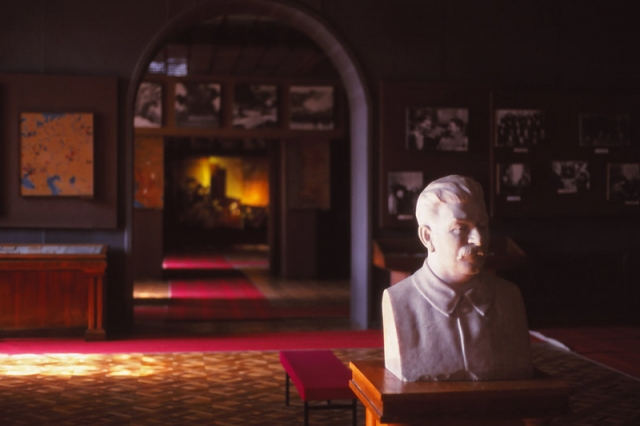
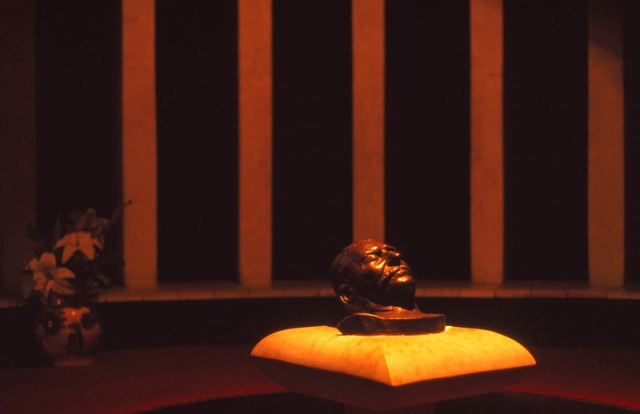
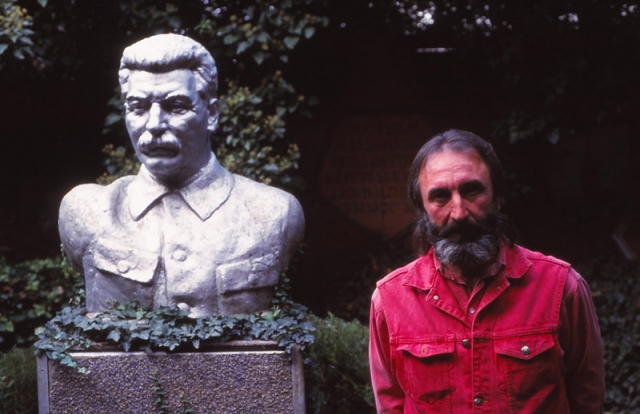
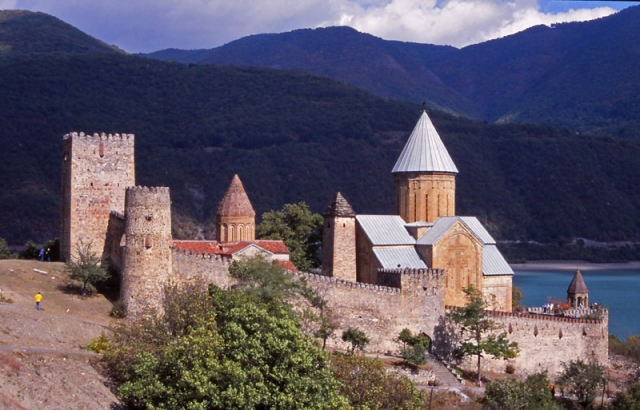
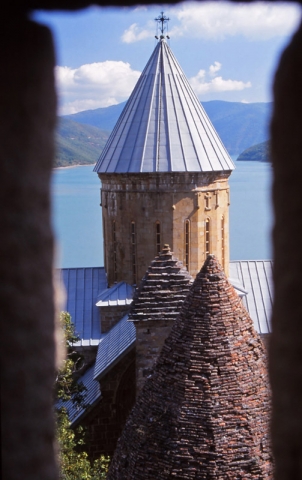
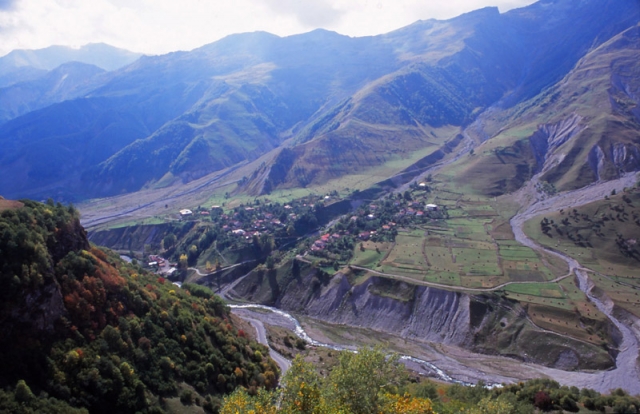
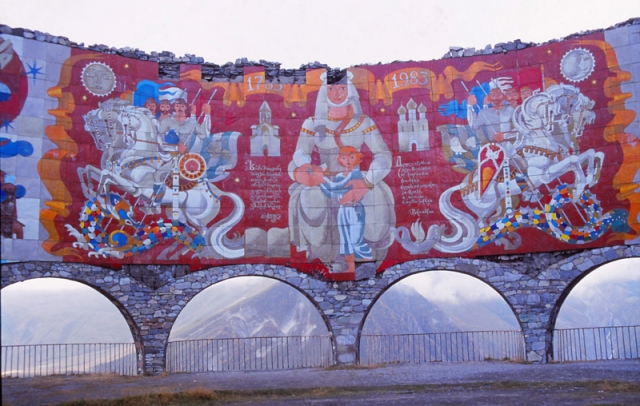
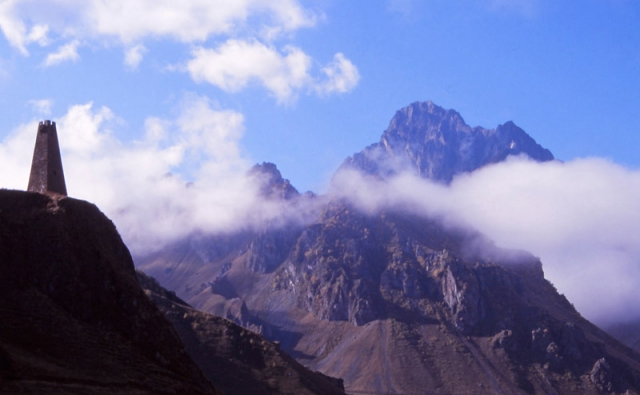
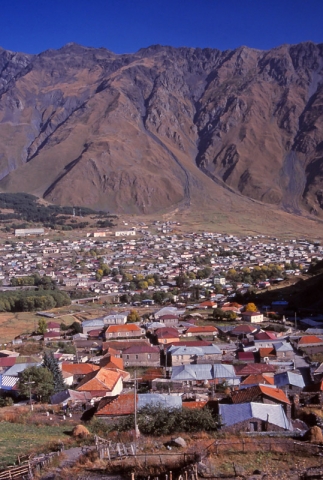
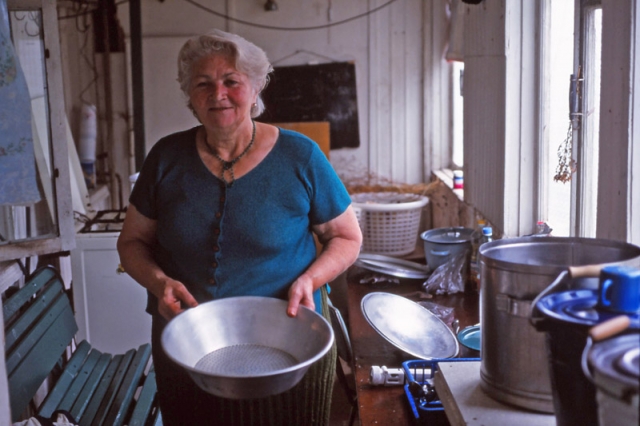
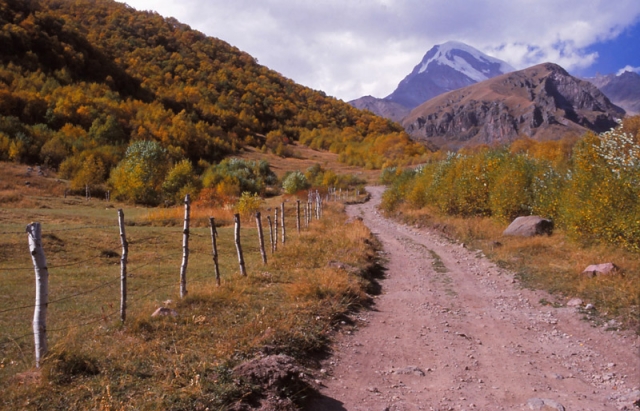
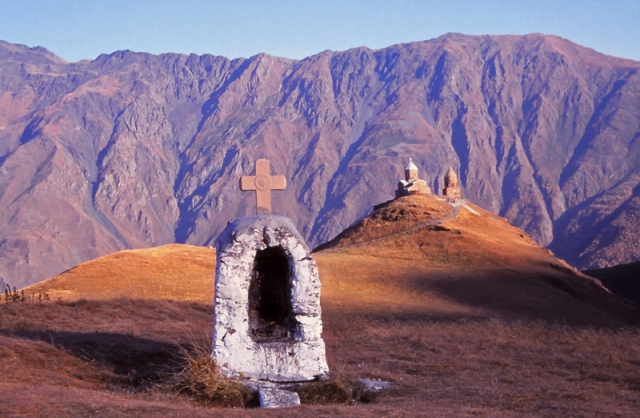
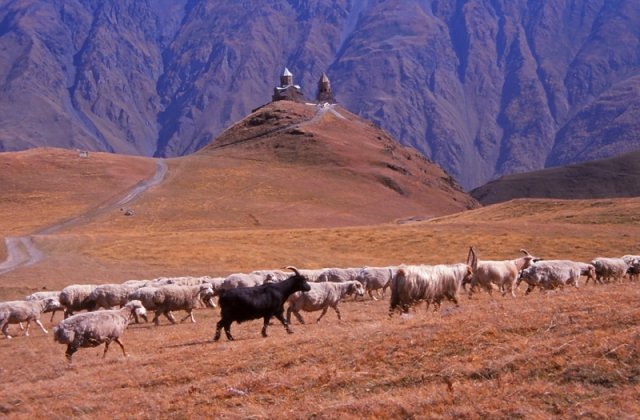
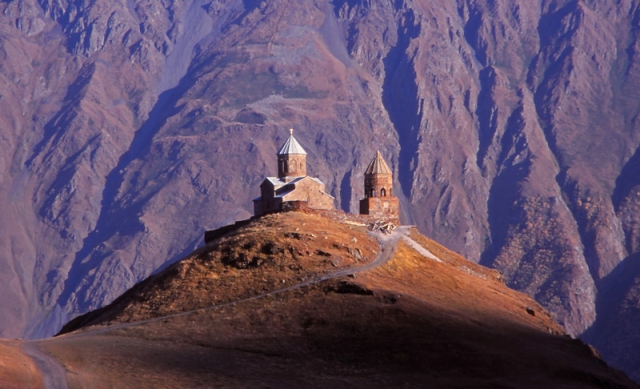
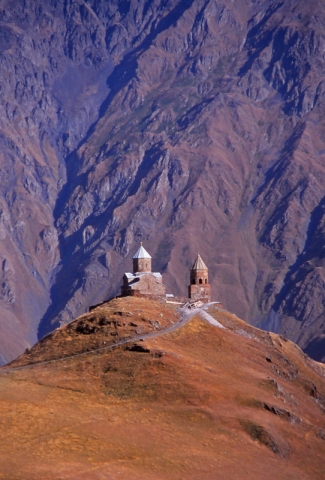
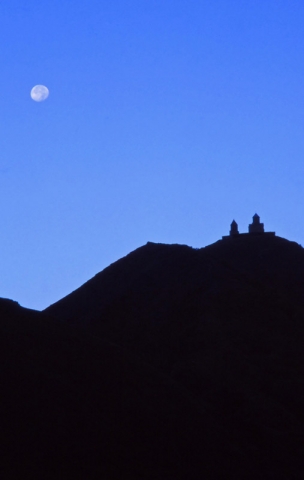
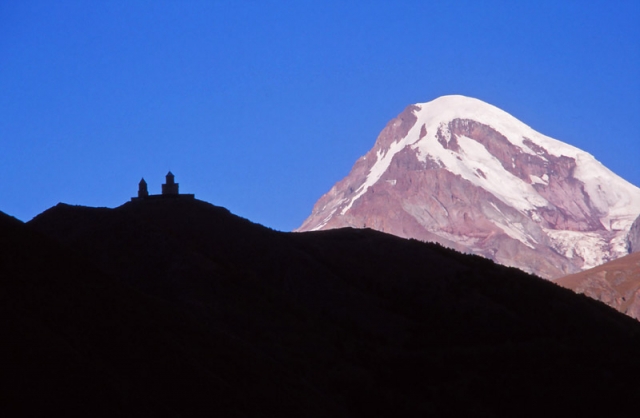
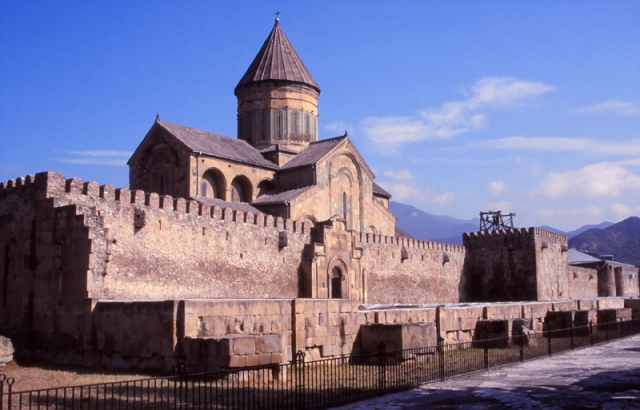
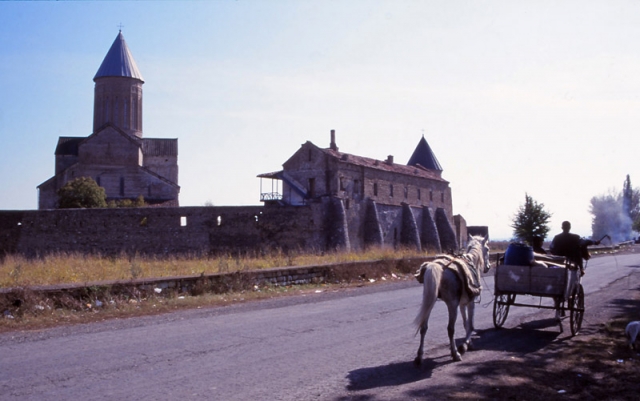
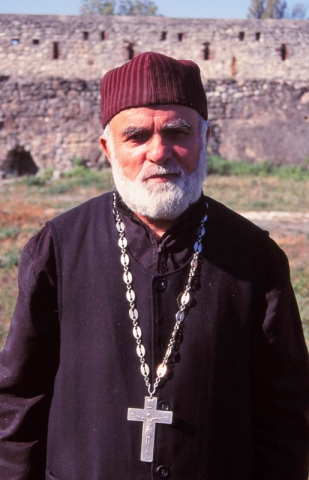
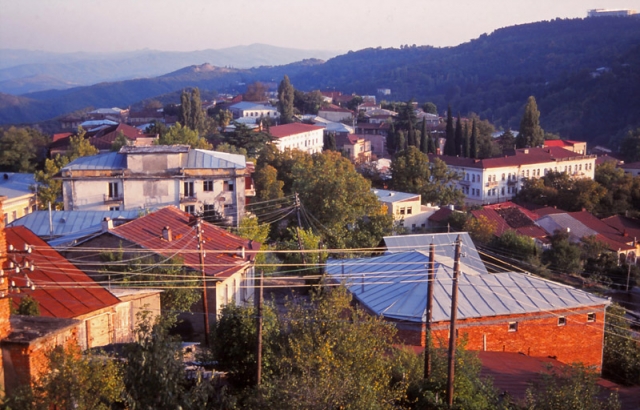
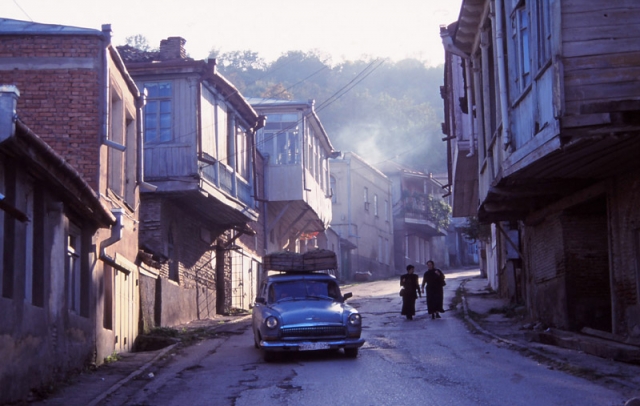
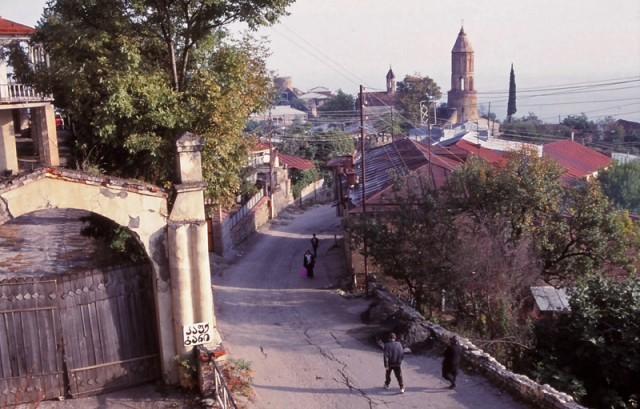
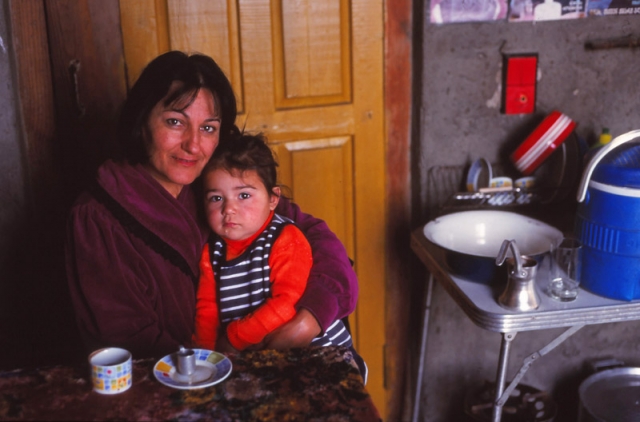
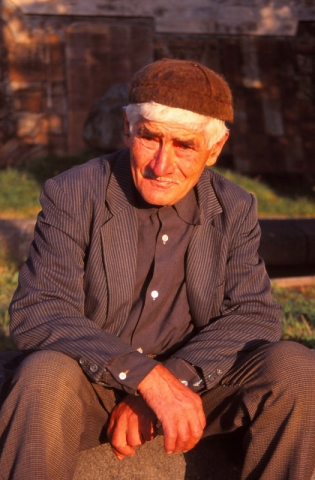

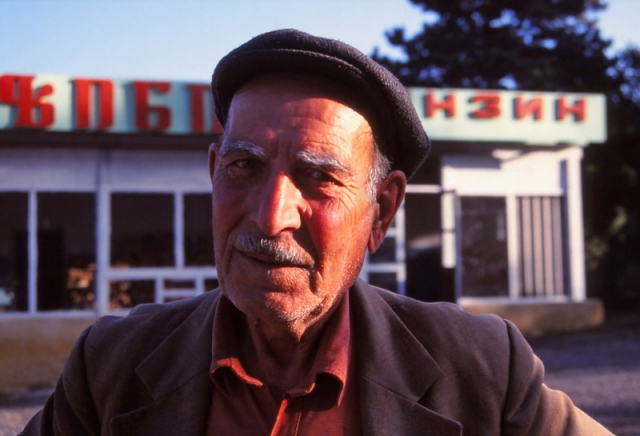
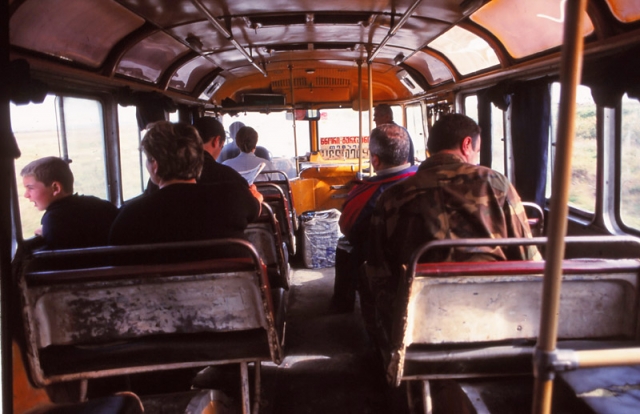
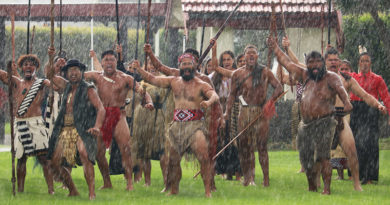

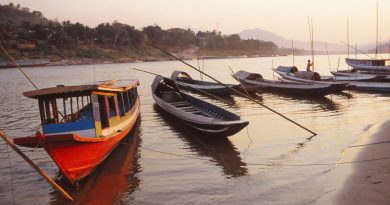
Well, I have not visited Georgia but I have met a number of Georgians in other countries, i.e. Dubai, Tashkent and Tehran etc and I found them very intelligent. Friendly people.
I am very much interested to visit some countries around Black Sea including Georgia, Bulgaria, Turkey etc. I want to meet people over there and make friends.
Mustafa
I hope you get there Mustafa. It’s a fantastic country.